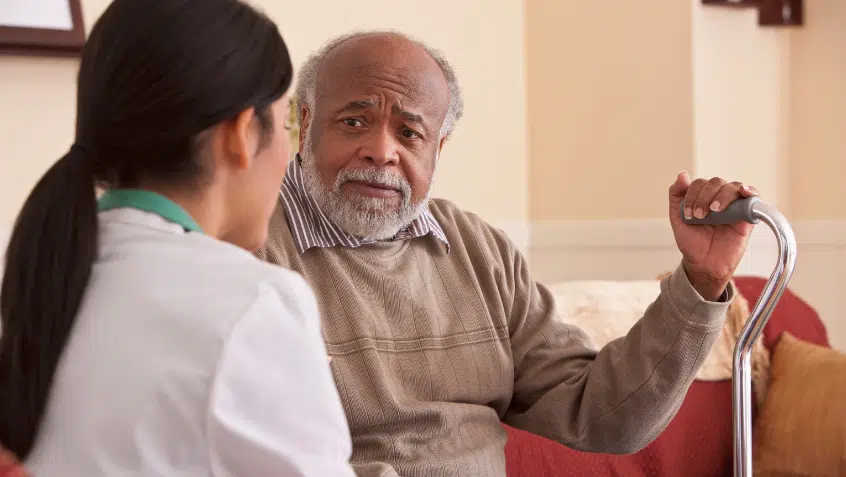New Resources Promote Access to COVID-19 Vaccines for Older Adults and People with Disabilities

Several departments within the U.S. Department of Health and Human Services (HHS)— the Office for Civil Rights (OCR), the Administration for Community Living (ACL), and the Office of the Assistant Secretary for Planning and Evaluation (ASPE)—published new resources designed to promote access to COVID-19 vaccines for people with disabilities and older adults.
Created for states, community partners, and others engaged in COVID-19 response activities, the materials outlined below clarify nondiscrimination rules, explain some vaccination barriers these populations often face, and provide strategies to ensure and expand vaccine access.
- Federal Legal Standards Prohibiting Disability Discrimination in COVID-19 Vaccination Programs. OCR’s new guidance reiterates that federal civil rights laws remain in effect during the pandemic. The agency outlines the relevant legal standards, provides examples of their application in the context of COVID-19 vaccine programs, and links to additional information and best practices.
- Disability Access in Vaccine Distribution. OCR also issued a fact sheet outlining some of the responsibilities under federal disability rights laws that may apply to those involved in the planning and distribution of COVID-19 vaccines. The document explains those rules and how to comply.
- Strategies to Improve Equitable Vaccine Access for Older Adults and People With Disabilities. ACL released a set of best practices to help states and communities ensure older adults and people with disabilities are vaccinated safely and quickly, in a welcoming, culturally competent, and culturally relevant environment. The compendium presents strategies around outreach and education; appointment facilitation; website and vaccination site accessibility; and mobile vaccinations.
- How ACL’s Disability and Aging Network is Advancing Vaccination Efforts. A companion piece, this document offers examples of how ACL program activities and partnerships can support vaccine access.
- Characteristics of Homebound Older Adults: Potential Barriers to Accessing the COVID-19 Vaccine. To inform efforts to increase vaccination among homebound older adults, ASPE explored the characteristics of this population. The agency’s analysis of various demographic, socioeconomic, health, and other indicators suggest that in-home vaccinations will be necessary, and that this process could be optimized through partnerships with community-based providers of in-home care, services, and supports, and by better engaging primary care doctors and health clinics.
Medicare Rights continues to support the goal of swiftly and safely vaccinating eligible individuals. Vaccines save lives and work best when as many people as possible receive them.
Visit Medicare Interactive to learn about Medicare coverage of COVID-19 vaccines.
The Latest
Most Read
Congress Moves to Cut Medicaid
Threats to the Social Security Administration and to Benefits Continue to Raise Alarm
House Adopts Senate Budget Plan, Laying the Groundwork for Significant Health Care Cuts
Trump Administration and DOGE Eliminate Staff Who Help Older Adults and People With Disabilities
Add Medicare to Your Inbox
Sign up to receive Medicare news, policy developments, and other useful updates from the Medicare Rights.
View this profile on InstagramMedicare Rights Center (@medicarerights) • Instagram photos and videos









